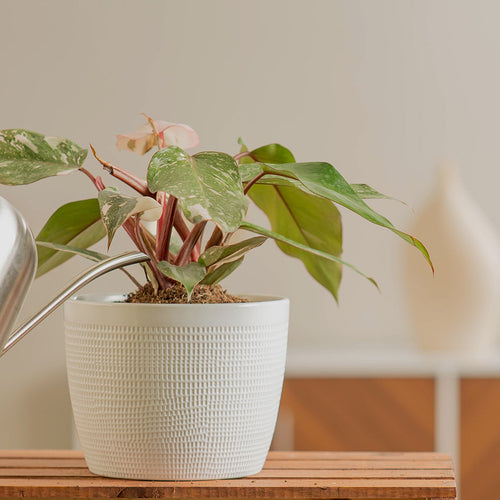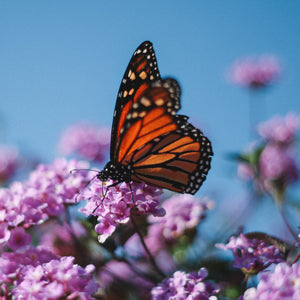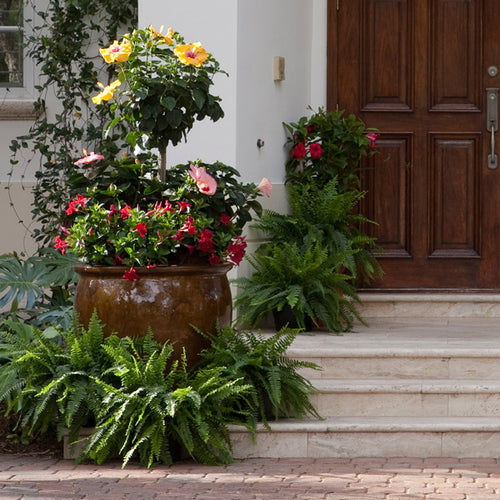
Accent Your Patio
Even one easy-care tropical, like this allamanda, can add big interest to a patio, porch, deck, or balcony. Because most tropicals love summer heat and humidity, you can count on them to shine from the time you get them -- and then all the way through fall. And if you live in a frost-free area (or one that rarely sees frost), with a little extra care, you can enjoy many tropical plants all year long on your patio.Live in a cold-winter area? Learn how to save your tropical plants for winter.
Tip: Boost interest by selecting a tropical plant that accents your décor. Here, for example, the yellow allamanda blooms contrast the blue on the pot (which matches the blue of the pillow).

Create a Focal Point
One beautiful blooming tropical plant looks good by itself, but you can easily up the drama by creating a cluster. Here, just three plants (yellow esperanza, red mandevilla, and orange cape honeysuckle) make a bold summer statement. All three bloom nonstop, no matter how hot the weather gets.ÂTip: Make your tropical plant grouping more interesting by using an odd number of plants. Three or five, for example, typically appeal more to the eye than two or four. Using containers of different sizes adds interest, too -- a small, a medium, and a large pot (in respect to each other) is a classic formula for design success.
Learn more about the rule of three in design.

Decorate Your Doorway
Add instant curb appeal with a collection of bold, bright, easy-care tropicals next to your front door. Selecting tropicals and you can ensure your home maintains a welcoming look -- without having to worry about constantly watering your plants. This collection includes an elegant (and fragrant) gardenia tree, red and pink mandevillas, and hot pink oleander.ÂTip: If you don’t have a lot of space, select a vine, such as this mandevilla, or a
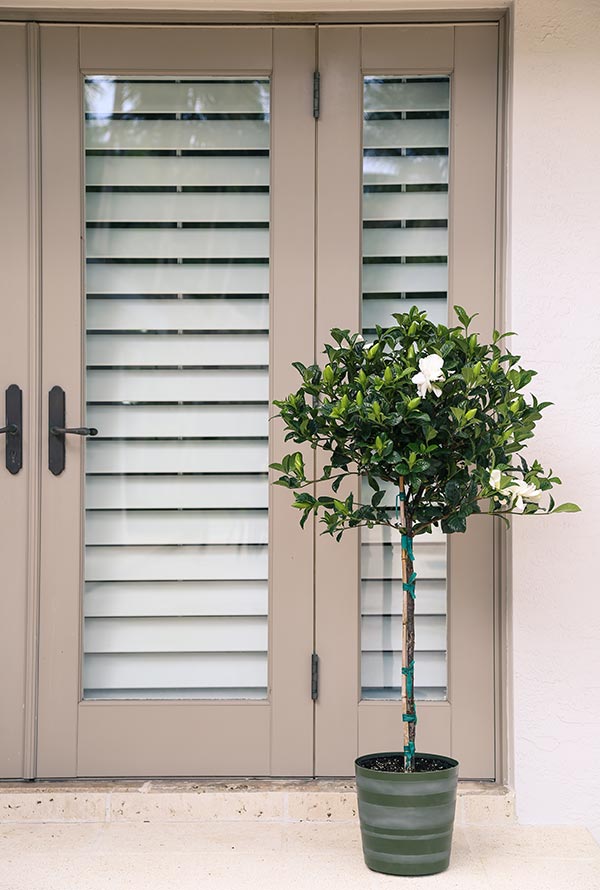
Enjoy Sweet Fragrance
We love tropical plants for their excellent performance in heat and humidity. The profusion of flowers is beautiful, too, but don’t forget about fragrance. Some, such as jasmine, plumeria, angel’s trumpet, Rangoon creeper, and this gardenia, will fill the air with their sweet scents.ÂTip: Fragrant tropical plants are perfect for growing next to doors and windows, so you can let some of their scents in your home, too.

Enliven a Tabletop
While big, bold plants might come to mind when you think about tropicals, there are smaller ones available. Easy-care mounding mandevillas, such as this Tropic Escape® Pink Costa del Sol, stay tidy, making them stunning centerpieces for parties or nightsTip: The smaller the pot, the faster it will dry out. So you may need to water tabletop tropical plants a little more often than their larger counterparts.
Learn more about mandevilla with our guide.
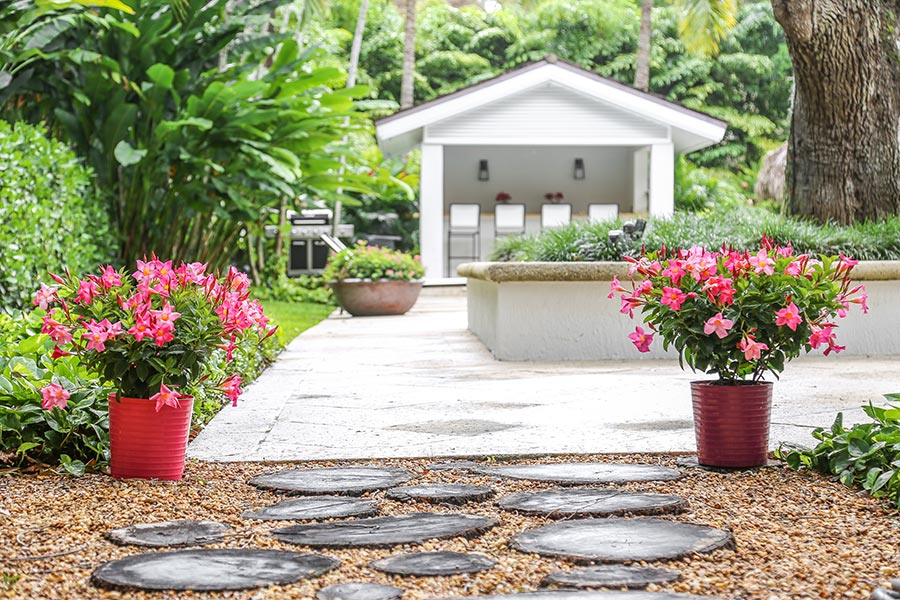
Frame a View
While an odd number of container plants looks best when grouped, you can’t go wrong with the classic look of a pair when framing a view. Set one plant, such asTip: When framing a view like this, think about the power of repetition. For example, the two pink-blooming mounding mandevillas play off the oversized pot of easy-care pink lantana in the background, helping the yard look more cohesive.

Add Drama to Containers
Tropical plants look great by themselves, but pair perfectly with annuals and perennials, too. Here, this pair of potsTip: When putting together container gardens, don’t overlook how powerful foliage can be. Your pots don’t have to be all about flowers!Â

Perk Up Your Pool
Just like along a walkway, a collection of beautiful blooming tropical plants along your pool is a quick and easy way to add elegance and drama. Here, five pinkTip: Many plants are sensitive to excess chlorine, so be sure to place them far enough from your pool that they won’t get

Create Privacy
Quick-growing tropical vines, including Tropic Escape® mandevilla, passionflower, and sky vine are a super-simple way of covering an eyesore, making a living fence, or adding interest to a regular fence. They grow fast to create a cloak of color you, as well as butterflies and hummingbirds, are sure to enjoy.Tip: When selecting tropical vines, take note of the way they climb. Mandevilla, for example,





